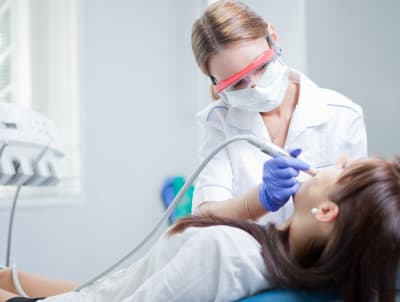The medical billing and coding field is a highly specialized field suitable for those who wish to have a fulfilling career in healthcare but want to avoid engaging in activities that require dealing with and taking care of patients in a direct manner.
As with most fields in healthcare, being a medical biller and coder requires utmost accuracy. Overall, the job is mainly geared towards properly recording patients’ health services, diagnoses, and clinical procedures.
Another closely related but slightly different field to medical billing and coding is the health information technician field. While health information technicians often perform medical billing and coding tasks, they also perform additional functions that are not necessarily part of a medical biller and coder’s area of expertise.
Medical Billing and Coding Duties
It is the job of a medical biller and coder to perform the following functions carefully:
- Organize and update patient information in appropriate clinical registries and database
- Record critical data for future retrieval and analysis
- Employ the proper classification systems regarding codes for patient data analysis
- Review clinical recordings for absolute accuracy and completeness
As mentioned earlier, being in the medical billing and coding field allows the luxury of not dealing directly with patients. However, there is still a need for constant communication with nurses and other healthcare workers to ensure a smooth transfer of crucial information regarding patients’ health.
Accreditations for Medical Billing & Coding
One would typically need a postsecondary certificate or associate degree to qualify for a medical billing and coding assignment. Additionally, one would also have to acquire appropriate professional certification.
The American Health Information Management Association clarifies that an associate degree paves the way for more opportunities, but a postsecondary certificate is great for faster workforce entry.
It is also worth iterating the importance of accreditation when choosing a program. Many employers and organizations will only consider your candidacy if you have an accredited degree.
Accreditations are usually spread across national, regional, and programmatic levels. An accredited school or institution typically has this information on its website, but it always helps to verify for yourself.
Offline Programs for Medical Billing and Coding
Training schools for medical coders and billers vary significantly, particularly in their teaching mode. For those interested in brick-and-mortar institutions and face-to-face learning, we discuss some of the most pertinent options below.
- Oakton Community College offers an associate degree through its health information technology program that allows for both part-time and full-time students. The program is based in Des Plaines, Illinois, and costs $137 per semester credit hour for its district residents and $367 for non-district residents.
- The medical coder and biller certificate at Santa Fe offers entry-level candidates post-secondary credentials and provides full-time and part-time options. The program is located in Gainesville, Florida, and costs $77 for every credit hour for district residents.
- Lastly, Coppin State University offers a Bachelor of Science in Health Information Management. The program is highly successful, and many students boast a high employment rate. The program costs $395 per unit for fees and tuition.
CAHIM accredits all of these programs.
Online Programs for Medical Billing and Coding
Since medical billing and coding are highly computer-friendly, many options exist for those looking to gain proficiency and appropriate certificates online. Here’s an overview of some of the best prospects in this regard.
- Albany State University offers an online associate of science degree in health information technology. The program accommodates various career specializations under health information technology, including health data analysis, patient information coordination, and physician practice management.
It costs $118 for every credit.
- The second option on our list is the online Bachelor of Science program at Dakota State University. It specializes in computer information systems along with medical coding and analysis. The program is highly selective, as acknowledged by the school itself. It is located in Madison, South Dakota, and costs $340.05 for every credit hour.
- Lastly, in the online certification category is the online medical billing and coding certificate from Drexel University. They offer a six-course postsecondary certificate that can be completed a hundred percent online.
The campus is located in Philadelphia and costs $834 for every credit hour.
Credentialing for Medical Billing and Coding
Several employers and organizations will only employ medical billers and coders with certifications. This is different from the basic level postsecondary certificate. Below are three of the most common additional credentials that medical billers and coders should strive to obtain as fast as possible.
RHIT - Registered Health Information Technician (RHIT)
An advanced AHIMA credential, the RHIT requires a relatively more stringent set of requirements than most other certificates. For this reason, it is the most desired.
CCA - Certified Coding Associate
The National Commission accredits this entry-level AHIMA credential for Certifying Agencies (NCCA). It is available strictly for medical coding specialists and requires a high school diploma and a scaled score of at least three hundred out of four hundred on the exam.
CCS & CCS-P - Certified Coding Specialist & Certified Coding Specialist - Physician-based
CCS is for coders who work in hospitals and is geared toward mastery of medical information classification. On the other hand, CCS-P is also a certification like the CCS, but with a specific target for those who work in physician-based environments like group practices or doctor’s offices.
Career Outlook & Employment Variables
The job prospect for future medical billers and coders is exceptionally high. The Bureau of Labor Statistics estimates that there will be a 9 percent rise in openings on a national scale. This is due to a host of reasons, including continuous advancements in health technology, industrial changes, reform in health care, and, of course, the existing shortage in the field.
To obtain an edge over the field, applicants can distinguish themselves through professional certification, technical skills acquisition, and even more continuing education activities for bi-yearly recertification.




